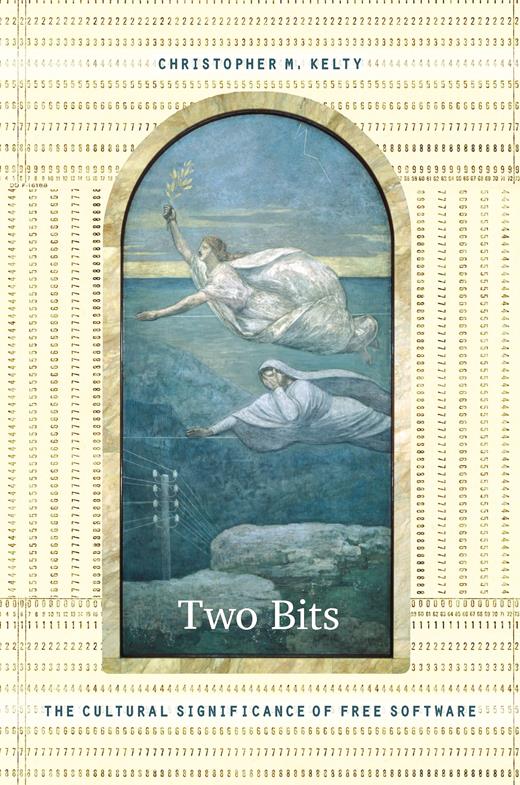Matteo Pasquinelli: Animal Spirits: A Bestiary of the Commons (2008)
Filed under book | Tags: · activism, commons, filesharing, free culture, media culture, pornography

“After a decade of digital fetishism, the spectres of the financial and energy crisis have also affected new media culture and brought into question the autonomy of networks. Yet activism and the art world still celebrate Creative Commons and the ‘creative cities’ as the new ideals for the Internet generation. Unmasking the animal spirits of the commons, Matteo Pasquinelli identifies the key social conflicts and business models at work behind the rhetoric of Free Culture. The corporate parasite infiltrating file-sharing networks, the hydra of gentrification in ‘creative cities’ such as Berlin and the bicephalous nature of the Internet with its pornographic underworld are three untold dimensions of contemporary ‘politics of the common’. Against the latent puritanism of authors like Baudrillard and Žižek, constantly quoted by both artists and activists, Animal Spirits draws a conceptual ‘book of beasts’. In a world system shaped by a turbulent stock market, Pasquinelli unleashes a politically incorrect grammar for the coming generation of the new commons.”
Published by NAi Publishers, Rotterdam / Institute of Network Cultures, Amsterdam, December 2008.
ISBN 9056626639, 9789056626631
240 pages
Reviews: Luciana Parisi (Mute, 2009), Willem van Weelden (Open, 2009), Jussi Parikka (Leonardo, 2009), McKenzie Wark (Public Seminar, 2015).
PDF (updated on 2012-7-15)
Comment (0)Christopher M. Kelty: Two Bits: The Cultural Significance of Free Software (2008–) [EN, ES]
Filed under book | Tags: · commons, copyright, floss, free software, open source, software

“In Two Bits, Christopher M. Kelty investigates the history and cultural significance of Free Software, revealing the people and practices that have transformed not only software, but also music, film, science, and education. Free Software is a set of practices devoted to the collaborative creation of software source code that is made openly and freely available through an unconventional use of copyright law. Kelty shows how these specific practices have reoriented the relations of power around the creation, dissemination, and authorization of all kinds of knowledge after the arrival of the Internet.
Two Bits also makes an important contribution to discussions of public spheres and social imaginaries by demonstrating how Free Software is a “recursive public”-a public organized around the ability to build, modify, and maintain the very infrastructure that gives it life in the first place.Drawing on ethnographic research that took him from an Internet healthcare start-up company in Boston to media labs in Berlin to young entrepreneurs in Bangalore, Kelty describes the technologies and the moral vision that binds together hackers, geeks, lawyers, and other Free Software advocates. In each case, he shows how their practices and way of life include not only the sharing of software source code but also ways of conceptualizing openness, writing copyright licenses, coordinating collaboration, and proselytizing for the movement. By exploring in detail how these practices came together as the Free Software movement from the 1970s to the 1990s, Kelty also shows how it is possible to understand the new movements that are emerging out of Free Software: projects such as Creative Commons, a nonprofit organization that creates copyright licenses, and Connexions, a project to create an online scholarly textbook commons.”
Publisher Duke University Press, 2008
ISBN 0822342642, 9780822342649
xvi+378 pages
Book website
Publisher (EN)
Publisher (ES)
Two Bits: The Cultural Significance of Free Software (English, 2008, 3 MB, HTML (ZIP), updated on 2023-3-14)
Two Bits: la trascendencia cultural del software libre (Spanish, 2019, 8 MB, added on 2023-3-14)
Michael Hardt, Antonio Negri: Empire (2001–) [EN, DE, CR]
Filed under book | Tags: · activism, biopolitics, capitalism, commons, control society

“Imperialism as we knew it may be no more, but Empire is alive and well. It is, as Michael Hardt and Antonio Negri demonstrate in this bold work, the new political order of globalization. It is easy to recognize the contemporary economic, cultural, and legal transformations taking place across the globe but difficult to understand them. Hardt and Negri contend that they should be seen in line with our historical understanding of Empire as a universal order that accepts no boundaries or limits. Their book shows how this emerging Empire is fundamentally different from the imperialism of European dominance and capitalist expansion in previous eras. Rather, today’s Empire draws on elements of U.S. constitutionalism, with its tradition of hybrid identities and expanding frontiers.
Empire identifies a radical shift in concepts that form the philosophical basis of modern politics, concepts such as sovereignty, nation, and people. Hardt and Negri link this philosophical transformation to cultural and economic changes in postmodern society–to new forms of racism, new conceptions of identity and difference, new networks of communication and control, and new paths of migration. They also show how the power of transnational corporations and the increasing predominance of postindustrial forms of labor and production help to define the new imperial global order.
More than analysis, Empire is also an unabashedly utopian work of political philosophy, a new Communist Manifesto. Looking beyond the regimes of exploitation and control that characterize today’s world order, it seeks an alternative political paradigm–the basis for a truly democratic global society.”
Key words and phrases: biopolitical, labor power, Antonio Negri, postmodern, Michael Hardt, proletariat, postmodernist, Gilles Deleuze, capitalist, deterritorialized, plane of immanence, nation-states, biopower, U.S. Constitution, Fordist, Felix Guattari, Fredric Jameson, ontological, surplus value, cold war
Publisher Harvard University Press, 2001
ISBN 0674006712, 9780674006713
478 pages
Reviews: Ernesto Laclau (Diacritics, 2001), more.
Empire (English, 2001, updated on 2012-7-27)
Empire. Die neue Weltordnung (German, trans. Thomas Atzert and Andreas Wirthensohn, 2002, added on 2012-7-27)
Imperij (Croatian, trans. Živan Filippi, 2003, updated on 2017-7-27)

